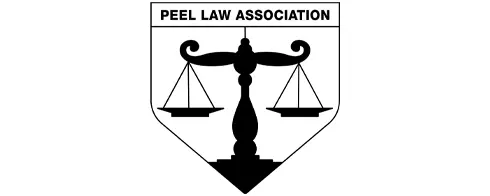Assault with a Weapon or Causing Bodily Harm (Section 267 of the Criminal Code)
In Canada, assault with a weapon and assault causing bodily harm are serious criminal offences under Section 267 of the Criminal Code. These charges carry harsher penalties than simple assault due to the involvement of a weapon or the resulting injuries. A conviction under Section 267 can have lasting consequences, impacting your freedom, employment, and personal life.
What is Assault with a Weapon or Causing Bodily Harm?
Under Section 267, a person can be charged with this offence if they:
- Commit an assault while using, carrying, or threatening to use a weapon, or
- Commit an assault that results in bodily harm to the victim.
Assault with a weapon involves any object that could be used to threaten or inflict harm, including conventional weapons (like a knife) or even everyday objects (like a bottle or a pen) if used as a weapon.
Assault causing bodily harm means the victim sustained injuries that go beyond minor or superficial harm, typically requiring medical treatment or significantly impacting the victim’s well-being.
Possible Penalties
Section 267 charges can lead to severe consequences, with punishments depending on the severity of the offence, the circumstances surrounding it, and whether the accused has a prior criminal record. Penalties may include:
- Imprisonment: Assault with a weapon or causing bodily harm can result in up to 10 years of imprisonment if prosecuted as an indictable offence, or up to 18 months for a summary conviction.
- Probation: A court may impose probation conditions, such as regular check-ins, attending anger management programs, or community service.
- Weapon Prohibition: Upon conviction, the accused may face restrictions on possessing firearms or other weapons.
Defending Assault with a Weapon or Causing Bodily Harm Charges
If you are facing charges under Section 267, it’s essential to know that you have the right to a strong defence. Some common defences include:
- Self-Defense: You may argue that you only used force because you believed you were in imminent danger.
- Lack of Intent: For example, if you did not intend to use the object as a weapon or cause bodily harm, this may impact the case.
- Identity: In cases involving multiple individuals, establishing that you were not responsible for the assault can be a valid defence.
- Consent: In rare cases, if the physical contact occurred with mutual consent, this can be argued as a defence.

Why Hire Nirwal Law for Weapons charges Related Assaults
Assault with a weapon or causing bodily harm charges are serious, and a conviction can lead to long-term consequences affecting your life, career, and family. Experienced criminal lawyer Manbir Nirwal will carefully examine the evidence, question witness credibility, and identify inconsistencies in the prosecution’s case to help achieve the best possible outcome.
At Nirwal Law, we have extensive experience defending clients against complex assault charges, including Section 267 offences. Our goal is to provide the best criminal lawyer services and protect your rights and work toward a favorable resolution, whether through negotiating a lesser charge, seeking alternative sentencing, or defending your case at trial. If you’re facing a Section 267 charge, contact Brampton criminal defence lawyer Manbir Nirwal for services all over Ontario.

Assault with a Weapon FAQs
Common Questions on Assault with a Weapon Defense
Assault with a weapon involves using or threatening to use an object to cause harm. The object doesn’t need to be a traditional weapon; anything used to inflict injury can qualify. At Nirwal Law, we explore all aspects of the case, including intent and circumstances, to build a strong defense and challenge the charges.
Defenses can include self-defense, lack of intent, or wrongful identification. Our lawyers at Nirwal Law meticulously review evidence and witness statements to establish a solid defense. We aim to prove your innocence or reduce the severity of the charges, protecting your future from severe legal consequences.
Yes, charges for assault with a weapon can potentially be reduced or dismissed depending on the case specifics. Factors like lack of evidence, mitigating circumstances, or legal errors can be leveraged. Nirwal Law’s skilled attorneys work diligently to negotiate plea bargains or seek dismissals, striving for the most favorable outcome.
A conviction can have long-term effects, including difficulties in employment, travel restrictions, and a tarnished reputation. It is crucial to seek experienced legal representation to mitigate these impacts. At Nirwal Law, we are committed to defending your rights and protecting your future, working to minimize the consequences of a conviction.
If charged, it’s vital to remain calm and contact a lawyer promptly. Avoid discussing the incident with anyone except your attorney. At Nirwal Law, we provide immediate legal advice and representation, helping you understand your rights and options while building a strong defense strategy from the outset.
Yes, even if no physical harm occurred, the use of a weapon to threaten or intimidate can still lead to an assault with a weapon charge.
Client Testimonials
Our Clients Share Their Experiences with Our Legal Services
EXCELLENTTrustindex verifies that the original source of the review is Google. Had a great experience working with Manbir from start to finish. He walked me through every step, gave clear and practical advice and helped achieve a solid outcome. Felt supported the whole way through. Would definitely recommendTrustindex verifies that the original source of the review is Google. Just hired manvir he seems very transparent about what is going on I'm very confidentTrustindex verifies that the original source of the review is Google. Manbir is an amazing criminal defense attorney. From our very first meeting, he listened carefully, making sure to answer all my questions in plain language, and he mapped out a clear strategy. His courtroom expertise and dedication gave us an excellent outcome, and his compassion and communication made such a stressful process ten times more manageable. If you need a knowledgeable, professional advocate who truly cares, this is him. I highly recommend Manbir!Trustindex verifies that the original source of the review is Google. Manbir is by far a very competent lawyer. His knowledge and expertise are exceptional. Highly Recommend him.Trustindex verifies that the original source of the review is Google. best criminal lawyer in brampton they provided the best suggestions which was required.Trustindex verifies that the original source of the review is Google. Manbir Nirwal is an intelligent lawyer who goes to the depth of any case he handles. He is an honest and friendly person to talk to. I will definitely recommend him if you are looking for a good lawyer.Trustindex verifies that the original source of the review is Google. Great service and knowledgeable staff.
Contact Us for Legal Support
Get Expert Legal Assistance for Assault with a Weapon Cases







